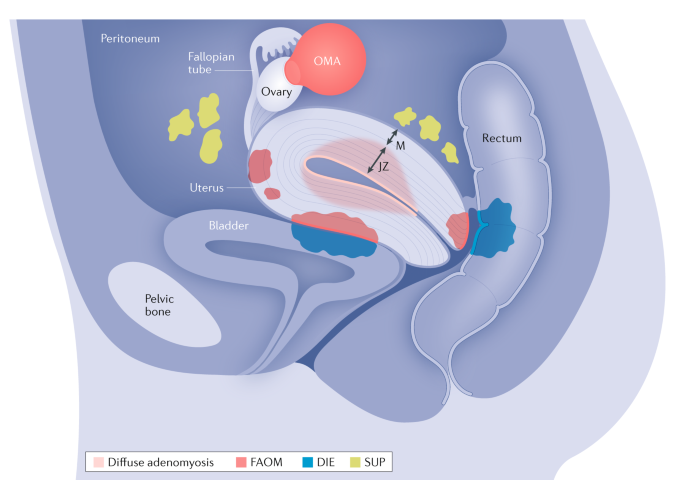
Most women cramp during their menstrual periods. However, not each menstrual pain is your usual cramping that comes and goes when you are done with your periods. Endometriosis is one reproductive abnormality most women have unknowingly, thanks to its relatable symptoms to other pelvic pain illnesses. Raveco Medical boasts of a specialized team that offers evaluation and treatment for endometriosis in Jackson Heights. The condition, characterized by abnormal growth of the uterine lining in other areas other than your uterus, will cause you severe pain and hinder you from leading a normal life, especially during your menstrual cycle.
What are the signs and symptoms of endometriosis?
Endometriosis has no prevailing symptoms. However, when it starts to show the typical signs, you are likely to experience pain associated with your menstrual periods. The pain, which ranges from moderate to severe, may worsen during your periods. You should contact your doctor when you experience most endometriosis-related symptoms before the condition worsens.
The common symptoms of endometriosis include
- Painful sexual intercourse
- Excessive bleeding between menstrual periods
- Painful bowel movements and urination, especially during your periods
- Diarrhea, constipation, fatigue, nausea and bloating during your menstrual periods
- Heavy periods
- Infertility
The severity of your pelvic pain is not an indicator of endometriosis’ extent. While some women may experience severe pain and the condition is mild, others may have little or no pain at an advanced stage. Your doctor will suspect endometriosis after reviewing your symptoms. Additionally, he could also request a laparoscopy to analyze the abnormal tissues.
How is endometriosis treated?
There are several ways your doctor will try to relieve you from pain and restore your fertility. However, most of the treatment options your doctor will suggest will manage your symptoms and improve your life quality. The treatments include:
- Pain relievers to minimize your pain for a short while
- Hormone therapy. Though the drugs used by your doctor in treatment will block your natural hormone production, the medication may cause temporary menopause and its associated symptoms.
- Surgery. During a surgical procedure, your doctor removes the bothersome endometrial tissues. You are likely to get pregnant when your doctor removes the worrying tissues. Additionally, the procedure is quick and has minimal complications.
- In a severe case, your doctor will recommend a hysterectomy. During the procedure, your doctor removes your uterus. Hysterectomy is also the only effective way to treat endometriosis.
What causes endometriosis?
The leading causes of endometriosis are still not exact. However, possible explanations for the condition include
- Endometrial cell transport. This is the transportation of the endometrial cells to your body’s other parts by your blood vessels.
- Immune system disorder. When your immune system has a condition, your body’s recognition and destruction of endometrial-like tissues growing outside your uterus become impossible.
- Retrograde menstruation. It occurs when your endometrial cell-filled menstrual blood flows back, passing through your fallopian tubes, and goes to your pelvic cavity instead of going through your vagina. The endometrial cells stick themselves on your pelvic walls, where they thicken with your menstrual cycle.
Endometriosis is mostly mistaken for conditions associated with pelvic pain like ovarian cysts or irritable bowel movement. Though endometriosis is a challenging problem to manage, a specialist’s early diagnosis and treatment will help you manage your painful and disruptive symptoms. Call the experts today or book an online appointment for more information on endometriosis.